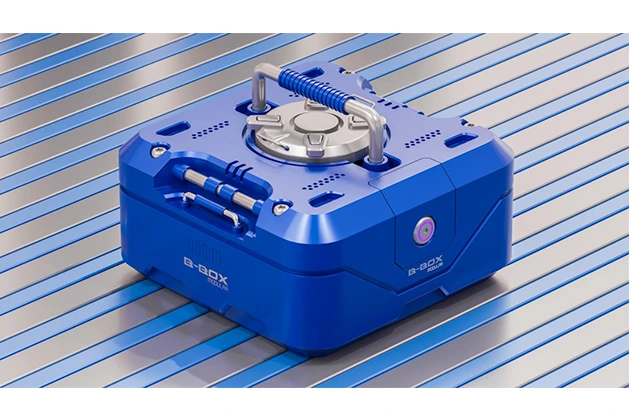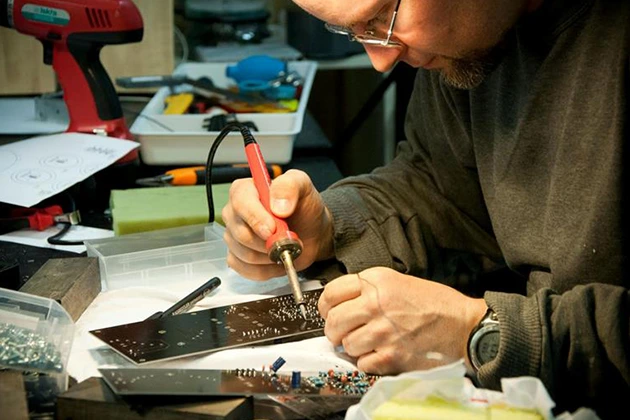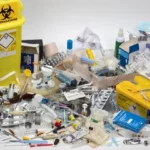Electronic enclosures protect sensitive equipment from environmental factors, electromagnetic interference, and other threats. In recent years, technological advancements have dramatically improved their functionality and reliability. This article explores how technology enhances the performance of electronic enclosures, focusing on the benefits of advanced materials, intelligent thermal management, effective sealing solutions, and more.
Advanced Materials for Better Protection
The choice of materials used in electronic enclosures significantly impacts their protective capabilities. Advanced materials, such as polycarbonate, aluminum alloy, and stainless steel, offer improved durability and resistance to environmental factors. Manufacturers are also turning to aluminum alloys for their lightweight yet sturdy characteristics, which allow for efficient heat dissipation.
Additionally, stainless steel variants offer enhanced corrosion resistance, making them well-suited for harsh environments such as marine or chemical processing facilities. According to the quality electronic enclosure manufacturers behind Bud Industries, partnering with professionals ensures you access materials designed to withstand specific environmental conditions, ultimately enhancing the lifespan of your products. By utilizing the latest materials, companies can protect their devices against external threats.
Sealing Technologies for Enhanced Protection
Sealing technologies are vital for protecting the internal components of electronic enclosures from dust, debris, and moisture. Advanced sealing materials and techniques have greatly enhanced enclosures’ ability to resist environmental influences. Using gaskets made from elastomeric materials creates reliable barriers that prevent the infiltration of harmful substances. Newer technologies, such as molding and RTM (Resin Transfer Molding), have led to seamless enclosures that eliminate potential leakage points.
Furthermore, adding protective coatings can facilitate greater longevity by enhancing the ability against ultraviolet radiation and corrosive materials. The importance of proper sealing cannot be overstated, as any compromise can lead to significant downtime and costly repairs. As manufacturers expand into more versatile industries, effective sealing solutions are crucial in meeting compliance standards. Taking advantage of these advancements ensures quality performance and effectiveness.
Robust Testing Protocols for Quality Assurance
In an era where reliability is paramount, robust testing protocols have emerged as a crucial element of electronic enclosure production. Technological advancements have pioneered rigorous testing procedures that evaluate enclosures under extreme conditions. These tests can assess durability against high-impact forces, temperature extremes, and prolonged exposure to moisture. The data collected from these tests inform manufacturers about potential failure points, enabling them to improve designs iteratively.
Simulations and real-world testing scenarios allow businesses to analyze performance metrics, driving further innovations toward improving enclosure reliability. By adopting stringent testing protocols, manufacturers can achieve accredited standards, instilling confidence in end-users that their products will perform consistently over time.
Integration of Smart Technologies
Smart technology integration is becoming increasingly popular within electronic enclosures. The rise of IoT (Internet of Things) has propelled manufacturers to incorporate innovative features, allowing real-time monitoring and control of equipment. By embedding sensors that gather data, enclosures can provide valuable insights into performance, including temperature fluctuations or humidity levels. This data empowers users to intervene before issues arise, reducing downtime and maintenance costs.
Incorporating innovative technologies can also facilitate communication between multiple devices, fostering a more interconnected system. Furthermore, implementing predictive analytics allows companies to foresee potential failures and take preemptive measures. The benefits of innovative technologies are undeniable, enhancing enclosure performance and overall operational efficiency.
Enhanced Sustainability Initiatives
Sustainability has become an integral aspect of modern manufacturing and product design, influencing the approach to electronic enclosure production. Technology has unlocked innovative methods for creating more environmentally friendly solutions. Manufacturers are reducing their ecological footprint by using recycled materials or developing biodegradable alternatives.
Energy-efficient production processes and supply chains optimize resource use, further supporting sustainability goals. The move towards sustainability is beneficial from an environmental perspective and resonates with consumers who prefer eco-friendly options. Therefore, integrating these initiatives provides added value while promoting corporate responsibility. As businesses evolve, a focus on sustainability will continue to shape electronic enclosures’ future and manufacturing processes.
Supply Chain Improvements for Faster Delivery
Technological advancements have significantly enhanced supply chain management across various industries, including electronic enclosure production. Efficient logistics and real-time tracking have transformed how materials and products are procured and distributed. Automated systems streamline inventory management and minimize delays, driving down costs and improving overall delivery timelines.
Predictive analytics allow manufacturers to anticipate demand, ensuring they have the right resources at the right time. Collaborative technologies enable better communication between manufacturers, suppliers, and customers, resulting in quicker resolutions to issues and more agile production processes. As a result, companies can remain competitive by meeting market demands promptly while maintaining high-quality standards. Such improvements indicate that technology is a key driver in reshaping the modern landscape of supply chains.
Properly enhancing electronic enclosures requires a comprehensive understanding of modern technological advancements. From utilizing advanced materials to integrating innovative capabilities, businesses can ensure their devices are well-equipped for various applications. Implementing robust testing protocols and sustainable initiatives while focusing on compliance can create significant competitive advantages. Quality electronic enclosures protect sensitive equipment and contribute to overall efficiency and longevity, underscoring their essential role in today’s technology-driven landscape.











